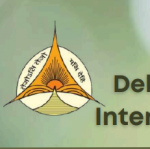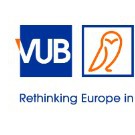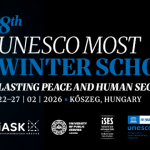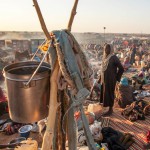ICYMI: Narratives of the Excluded and Invisible: Understanding Nuances in Internal Displacement and Migration from Ethiopia, Mongolia, and the Philippines

On 15 October, UN University - CRIS hosted a virtual webinar titled “Narratives of the Excluded and Invisible: Understanding Nuances in Internal Displacement and Migration from Ethiopia, Mongolia, and the Philippines”.
Moderated by UN University - CRIS Professorial Fellow Ine Lietaert, the webinar featured three presentations dealing with the push and pull factors, the most common risks and the government approaches to migration and internally displaced persons.
First, UN University - IAS student and UN University - CRIS Research Intern Dan Jezreel Orendain presented the case of the Philippines (more particularly, Davao City) and the complexities of the stratification of vulnerabilities of “bakwit” – IDPs. Then, Doctral Researcher at Ghent University Bayartsetseg Terbish explored the internal migration case of the capital city of Mongolia, Ulaanbaatar City and the Songinohairhan district, and how the government is coping with the increasing need for a multisectoral approach to migration. Lastly, Doctoral Research at Ghent University Dereje Regasa discussed the case of Ethiopia, the country that is hardest-hit by internal displacement and where there is no framework to protect “the world’s largest IDPs population”.
Afterwards, Mr Regasa drew some conclusions linking the three cases together and finding common threads, such as the overall increase in migration, the tendency of IDPs to move to cities due to lack of alternatives and the link to disaster risk (in particular, in the Philippines case) or intercommunal violence (in particular, in the Ethiopia case).
Professor Lietaert then opened the floor for questions. The following discussion explored a broad spectrum of topics, from challenging the practice of lumping together the concepts of internal migration and displacement, to analyzing governments responses, which tend to be reactive rather than proactive (assistance rather than protection), and to studying the influence of nationalism and sustainability challenges on IDPs.
The webinar proved to be a useful opportunity to discuss and share the concrete evidence and experiences of IDPs around the world. Evidence-based events on such topic lay better groundwork for responsive and informed policies and strategies that reduce IDPs vulnerability, decrease their exposure to risks, and increase their coping capacity.




